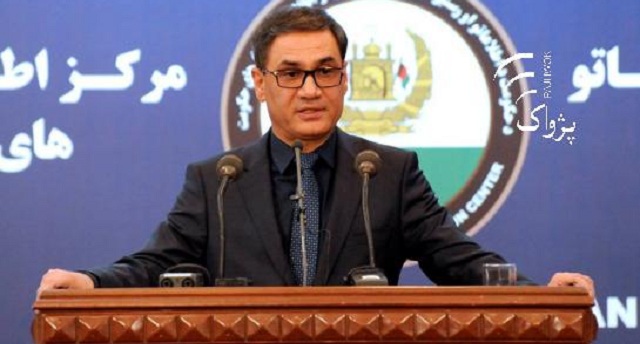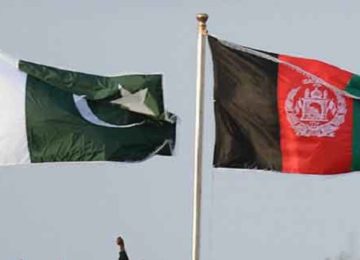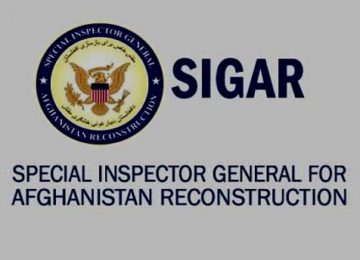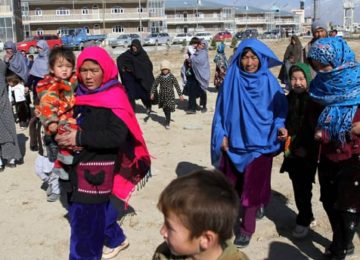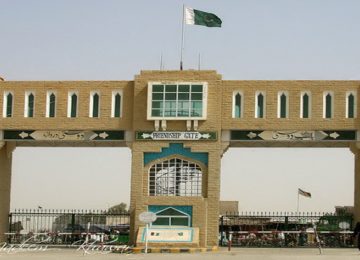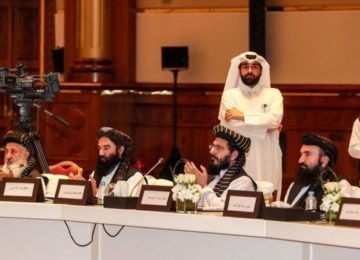As many as people 2,100 including civilians, security forces and militants have either been killed or wounded during the past eight days in 216 districts of the country, lawmakers were told on Monday.
Defense Minister Tariq Shah Bahrami, Interior Minister Wais Ahmad Barmak, spymaster Masoum Stanikzai and General Director of the Population Registration Department Mohammad Humayon Muhtat on Monday appeared before the Wolesi Jirga or lower house to brief lawmakers about the security situation, Taliban’s Al Khandaq Operation and distribution of old Identity Cards (IDs).
The National Directorate of Security (NDS) chief told the Wolesi Jirga that they recently thwarted a terrorist attack by Daesh in a European country.
Bahrami said since launching their spring offensive on April 29, the Taliban had carried out 890 attacks in 15 districts and their 1,744 armed attempts were foiled.
He said government forces also carried out 17,000 attacks which included airstrikes, ground attacks and others against the rebels.
Since April 29 till May, the lower house was told that 6, 215 security forces, 63 civilians and 799 militants have been killed.
During the period, 393 security forces, 499 militants and 129 civilians have been injured.
Bahrami said 41 security personnel have been captured by rebels while 77 insurgents arrested by security forces. Currently military offensives were underway in 12 provinces of the country, he said.
The Taliban after announcing their operation ‘Al Khandaq’ were unable to carry out attacks on major targets and only the Kohistan district of Badakhshan fell in their control for 72 hours, said Bahrami.
He said security forces might launch clearing operations in 216 insecure districts before the launch of voter registration process in district centre.
He said currently 7,183 Defense Ministry personnel were being tasked with the voter registration process across the country.
Interior Minister Wais Ahmad Barmak said 10,000 police would be tasked with election security and four to eight police posted at each polling station considering the level of threats.
He said districts under high security threats would be cleared of militants during operations before the elections started.
NDS chief Masoum Stanikzai said 1,122 of the total 6,000 polling stations faced medium level threat and another 120 stations high threat.
He said two people involved in organizing the attack on a Tazkira distribution center in Barchi area of Kabul had been arrested.
The attack in Barchi left nearly 200 people killed and wounded.
The NDS detained seven would-be suicide bombers, 312 insurgents, 52 kidnappers and 161 other criminals including 30 Daesh suspects during the last one and a half months, he said.
“The 30 Daesh suspects we arrested are those who are with us in the day but on the enemy side at night, we obtained information that they were organizing an attack in one of the European countries, we shared that information with that country and as a result, we failed their plan,” Stanikzai said without going into details.
He said the Afghan forces clearly faced “a foreign aggression” and the country’s jails were full of foreign insurgents. He asked people and MPs to get united and stand against an obvious foreign aggression.
On the other hand, a number of lawmakers expressed concern about forgery in paper Tazkira.
Mohammad Humayon Muhtat, Population Registration Department (PRD) head, confirmed fraud in Tazkira distribution and said currently 1,100 cases of fake Tazkira were sub-judice.
After completion of the special Tazkira distribution process for voters, the documents would be processed in the system to identify who received more than one ID card, Muhtat said.
Addressing the people, he said, “Anyone who receives more than one Tazkira would be brought to justice,” he said.
Wolesi Jirga speaker Abdul Rauf Ibrahimi also expressed concern about the country’s current security situation and asked the officials to bring into use more resources for ensuring people’s security during the election process.
This article originally appeared in Pajhwok News on May 07, 2018. Original link.
Disclaimer: Views expressed on this blog are not necessarily endorsed or supported by the Center for Research and Security Studies, Islamabad.



